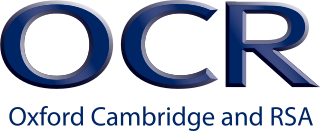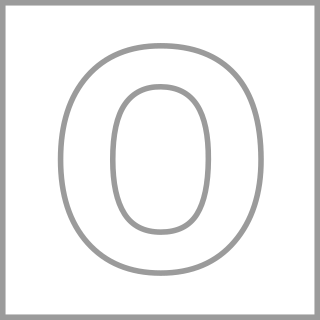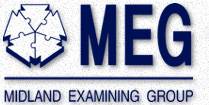Related Research Articles

The General Certificate of Secondary Education (GCSE) is an academic qualification in a range of subjects taken in England, Wales and Northern Ireland, having been introduced in September 1986 and its first exams taken in 1988. State schools in Scotland use the Scottish Qualifications Certificate instead. However, private schools in Scotland often choose to follow the English GCSE system.
The General Certificate of Education (GCE) is a subject-specific family of academic qualifications used in awarding bodies in England, Wales, Northern Ireland, Crown dependencies and a few Commonwealth countries. For some time, the Scottish education system has been different from those in the other countries of the United Kingdom.

AQA Education, trading as AQA, is an awarding body in England, Wales and Northern Ireland. It compiles specifications and holds examinations in various subjects at GCSE, AS and A Level and offers vocational qualifications. AQA is a registered charity and independent of the government. However, its qualifications and exam syllabi are regulated by the Government of the United Kingdom, which is the regulator for the public examinations system in England and Wales.
An examination board is an organization that sets examinations, is responsible for marking them, and distributes the results. Some are run by governmental entities; some are run as not-for-profit organizations.

Oxford, Cambridge and RSA Examinations (OCR) is an examination board that sets examinations and awards qualifications. It is one of England, Wales and Northern Ireland's five main examination boards.

The International General Certificate of Secondary Education (IGCSE) is an English language based secondary qualification similar to the GCSE and is recognised in the United Kingdom as being equivalent to the GCSE for the purposes of recognising prior attainment. It was developed by Cambridge Assessment International Education. The examination boards Edexcel, Learning Resource Network (LRN), and Oxford AQA also offer their own versions of International GCSEs. Students normally begin studying the syllabus at the beginning of Year 10 and take the test at the end of Year 11. However, in some international schools, students can begin studying the syllabus at the beginning of Year 9 and take the test at the end of Year 10.
Cambridge Assessment English or Cambridge English develops and produces Cambridge English Qualifications and the International English Language Testing System (IELTS). The organisation contributed to the development of the Common European Framework of Reference for Languages (CEFR), the standard used around the world to benchmark language skills, and its qualifications and tests are aligned with CEFR levels.

The Sijil Pelajaran Malaysia (SPM), or the Malaysian Certificate of Education, is a national examination sat for by all fifth-form secondary school students in Malaysia. It is the equivalent of the General Certificate of Secondary Education (GCSE) of England, Wales and Northern Ireland; the Nationals 4/5 of Scotland; and the GCE Ordinary Level of the Commonwealth of Nations. It is the leaving examination of the eleventh grade of schooling.
The Singapore-Cambridge General Certificate of Education Ordinary Level is a GCE Ordinary Level examination held annually in Singapore and is jointly conducted by the Ministry of Education (MOE), Singapore Examinations and Assessment Board (SEAB) and the University of Cambridge Local Examinations Syndicate (UCLES). Students are graded in the bands ranging from A to F and each band has a respective grade point, a lower grade point indicates poor performance. The number at the end of each grade corresponds to the grade point that they receive. To pass an individual O-Level subject, a student must score at least C6 or above. The highest grade a student can attain is A1.
C2 Proficiency, previously known as Cambridge English: Proficiency and the Certificate of Proficiency in English (CPE), is an English language examination provided by Cambridge Assessment English (previously known as Cambridge English Language Assessment and University of Cambridge ESOL examination).

The A-level is a subject-based qualification conferred as part of the General Certificate of Education, as well as a school leaving qualification offered by the educational bodies in the United Kingdom and the educational authorities of British Crown dependencies to students completing secondary or pre-university education. They were introduced in England and Wales in 1951 to replace the Higher School Certificate. The A-level permits students to have potential access to a chosen university they applied to with UCAS points. They could be accepted into it should they meet the requirements of the university.

The O-Level is a subject-based qualification conferred as part of the General Certificate of Education. It began in the United Kingdom and has been adopted, often with modifications, in several other countries.

The Office of Qualifications and Examinations Regulation (Ofqual) is a non-ministerial government department that regulates qualifications, exams and tests in England. Colloquially and publicly, Ofqual is often referred to as the exam "watchdog".

The Midland Examining Group (MEG) was an examination board, operating in England, Wales and Northern Ireland. It offered a range of GCSE and Certificate of Achievement qualifications. It became part of OCR in 1998.
Examination boards in the United Kingdom are the examination boards responsible for setting and awarding secondary education level qualifications, such as GCSEs, Standard Grades, A Levels, Highers and vocational qualifications, to students in the United Kingdom.
The A-level is a main school leaving qualification of the General Certificate of Education in England, Wales, Northern Ireland, the Channel Islands and the Isle of Man. It is available as an alternative qualification in other countries, where it is similarly known as an A-Level.
The Singapore-Cambridge General Certificate of Education Advanced Level is a GCE Advanced Level examination held annually in Singapore and is jointly conducted by the Ministry of Education (MOE), Singapore Examinations and Assessment Board (SEAB) and the University of Cambridge Local Examinations Syndicate (UCLES).
Cambridge Technicals are vocational qualifications, offered by Oxford, Cambridge and RSA Examinations (OCR) in the United Kingdom, and Cambridge International Examinations (CIE) internationally; both are part of Cambridge University Press & Assessment. These qualifications are intended for secondary school students age 16 to 18 who want to study a practical, work-related curriculum. In the UK's Qualifications and Credit Framework (QCF) a Tech Level 2 qualification is equivalent to a GCSE, and a Level 3 is equivalent to an A Level. The qualifications are designed with the workplace in mind and provide a high quality alternative to A Levels, supporting progression to higher education.
In the United Kingdom there are various standardized tests for admission to university. Most applicants to universities in the UK take national examinations such as A-levels or Scottish Highers. Separate admissions tests are used by a small number of universities for specific subjects, many of these administered by Cambridge University's Admissions Testing Service.
References
- ↑ "Colleges and Departments". University of Cambridge. Archived from the original on 7 January 2022. Retrieved 7 January 2022.
- ↑ "Cambridge Assessment's Triangle building wins office award". Cambridge Assessment Network and Research. 29 August 2019. Archived from the original on 2 May 2024. Retrieved 30 June 2020.
- 1 2 "Award for Projects up to 1500m2". BCO. Archived from the original on 1 March 2022. Retrieved 1 March 2022.
- 1 2 "Our Research". Cambridge Assessment Network and Research. Archived from the original on 2 May 2024. Retrieved 1 March 2022.
- ↑ "Cambridge Assessment Network CPD Assessment training". Cambridge Assessment Network and Research. Archived from the original on 2 May 2024. Retrieved 7 January 2022.
- ↑ "Inside the secret location that's home to 8 million exam papers". Cambridge News. 10 September 2013. Archived from the original on 23 September 2015.
- ↑ "Who we are". Cambridge Assessment Network and Research. Archived from the original on 28 October 2020.
- ↑ "Cambridge Assessment and Cambridge University Press (online slideshow)". Cambridge Assessment. Archived from the original on 7 January 2022. Retrieved 7 January 2022.
- 1 2 "History of Cambridge University Press & Assessment". Cambridge University Press & Assessment. Archived from the original on 7 January 2022. Retrieved 7 January 2022.
- ↑ "PDF Examining The World Download Book – Best File Book". Archived from the original on 7 January 2022. Retrieved 1 March 2022.
- 1 2 Raban, Dr Sandra, ed. (2008). Examining the World. Cambridge University Press. ISBN 9780521884143. Archived from the original on 7 January 2022. Retrieved 7 January 2022.
- ↑ Stewart, William (4 February 2015). "Cambridge Assessment wants league tables taken out of ministers' hands" . Tes Magazine. Archived from the original on 1 March 2022. Retrieved 1 March 2022.
- ↑ "Who we are". Cambridge Mathematics. Archived from the original on 7 January 2022. Retrieved 7 January 2022.
- ↑ "Our partners". Cambridge Mathematics. Archived from the original on 7 January 2022. Retrieved 7 January 2022.
- ↑ "New partnership to provide expertise on global education reform". University of Cambridge. 6 October 2020. Archived from the original on 7 January 2022. Retrieved 7 January 2022.
- ↑ Lomholt, Isabelle (17 September 2018). "The Triangle Building in Cambridge". e-architect. Archived from the original on 1 March 2022. Retrieved 1 March 2022.
- ↑ "The Triangle, Cambridge – Coles Nurseries". Archived from the original on 1 March 2022. Retrieved 1 March 2022.
- ↑ "Pebble Seats Sculptural Seating by Ben Barrell at Cambridge Triangle". Barrell Sculpture. Archived from the original on 1 March 2022. Retrieved 1 March 2022.
- ↑ "Cambridge University Press to join with Cambridge Assessment". University of Cambridge. 20 October 2020. Archived from the original on 7 January 2022. Retrieved 7 January 2022.
- ↑ Quested, Tony (22 October 2020). "Cambridge University Press to merge with Cambridge Assessment". Business Weekly. Archived from the original on 7 January 2022. Retrieved 7 January 2022.
- ↑ Shepard, Gabriel (5 August 2021). "Cambridge University Press and Cambridge Assessment merge". CambridgeshireLive. Archived from the original on 7 January 2022. Retrieved 7 January 2022.